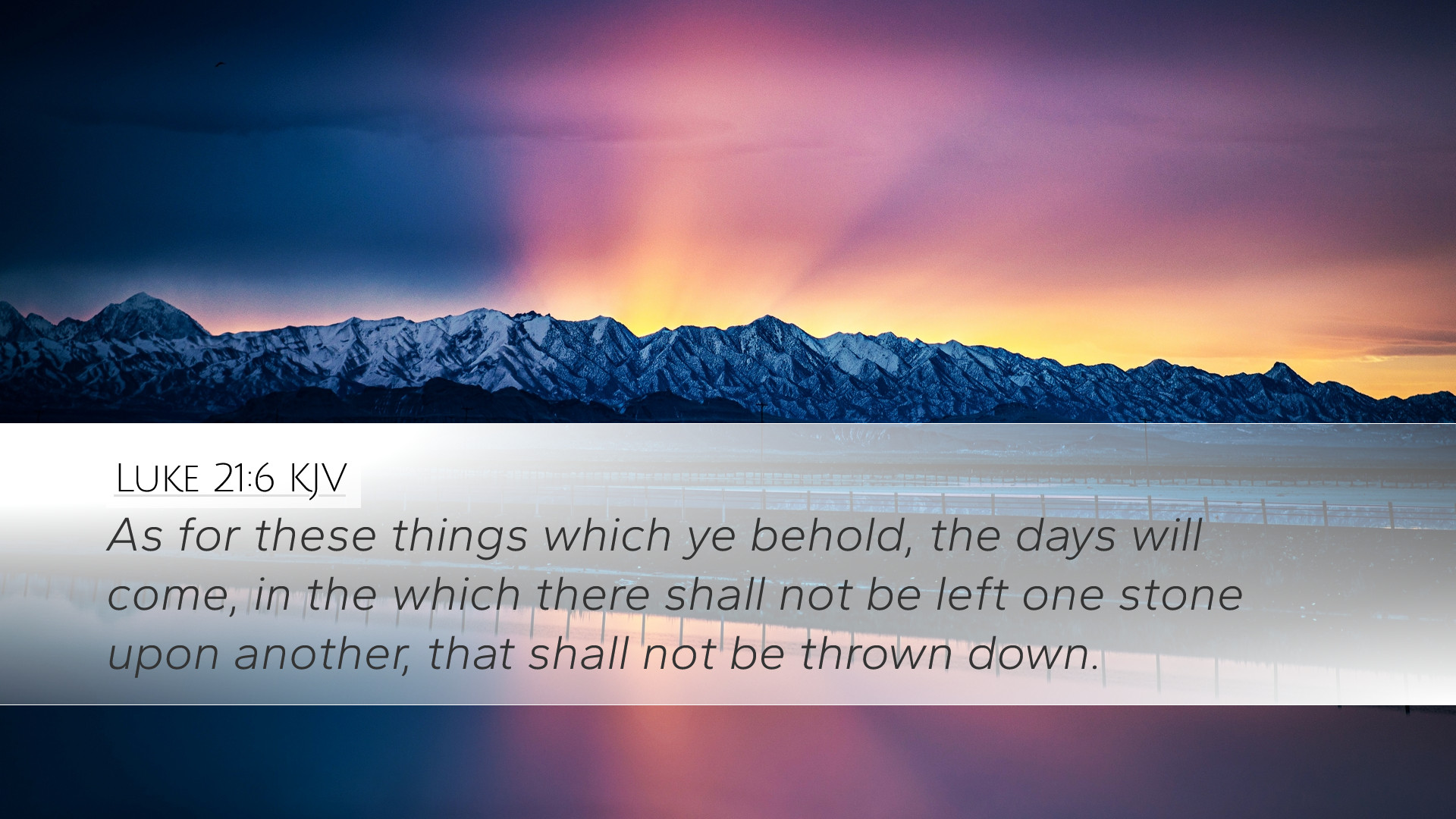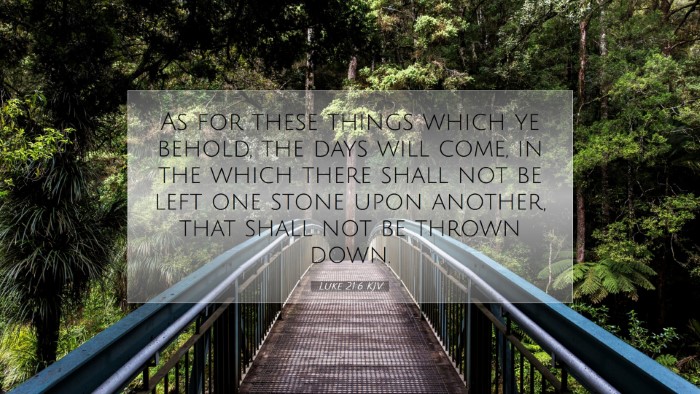Commentary on Luke 21:6
Verse: "As for these things which ye behold, the days will come, in the which there shall not be left one stone upon another, that shall not be thrown down."
Contextual Background
Luke 21:6 comes during Jesus Christ's prophetic teaching about the destruction of the temple in Jerusalem and the signs of the end times. In the preceding verses, His disciples admire the architecture and beauty of the temple, which prompts Jesus to prophesy its complete destruction. This statement, poignant and foreboding, holds crucial significance for the early Christian community, steeped in Jewish tradition and centered around the temple.
The Significance of the Temple
The temple represented the pinnacle of Jewish worship and God's presence among His people. Matthew Henry notes that to the Jews, the temple was the heart of their religious and cultural life. Its destruction would signify not just a physical loss but a profound spiritual crisis.
1. The Symbolism of the Temple
Adam Clarke elaborates on the physical description of the temple, highlighting its majestic stones and adorned offerings. These aspects underscore its perceived permanence and glory in the eyes of the Jewish people. Yet, in contrast, Jesus emphasizes the transient nature of human constructs, reminding believers of the sovereignty of God over all things.
2. A Prophetic Declartion
Albert Barnes discusses the prophetic nature of Jesus' words, which were fulfilled in AD 70 when the Romans destroyed the temple. This event marked a turning point, validating Jesus' prophetic authority and foreshadowing the broader implications of His message about judgment.
Theological Implications
This verse compels readers to reflect on the impermanence of worldly things. Matthew Henry emphasizes that while the temple was seen as a stronghold, its inevitable destruction reminds believers to invest in spiritual rather than physical treasures.
1. Warning Against False Security
This passage serves as a warning against placing too much confidence in outward religious symbols. Clarke comments that many rely on external rituals rather than genuine faith, urging believers to cultivate a heartfelt relationship with God.
2. Hope in Christ
Barnes points out that although the destruction of the temple signifies judgment, the prophecy also contains hope—pointing to the new covenant established through Christ, where the relationship with God transcends physical structures.
Life Application
Pastors, theologians, and students of the Word can extract profound lessons from this prophecy. Recognizing the temporary nature of earthly institutions encourages believers to focus on building eternal legacies. Luke 21:6 serves as a reminder that while physical places of worship can be important, the real temple is in the hearts of believers, where the Holy Spirit dwells.
1. Building a Lasting Faith
In light of this, pastors are encouraged to help their congregations cultivate a faith that withstands trials. As Barnes notes, Christians are called to build up the spiritual temple of the Church, which will endure beyond earthly structures.
2. Embracing Change
The historic context of this prophecy also highlights the necessity of adapting to change within faith communities. Clarke encourages believers to embrace God's direction even when it leads away from established traditions.
Conclusion
Luke 21:6 serves as a profound reminder of both God’s sovereignty and the need for a personal and enduring faith that transcends the physical. As pastors, scholars, and students engage with this verse, the insights from Matthew Henry, Albert Barnes, and Adam Clarke encourage a deeper understanding of God’s plan, cultivation of outward expressions of faith, and commitment to spiritual growth.


